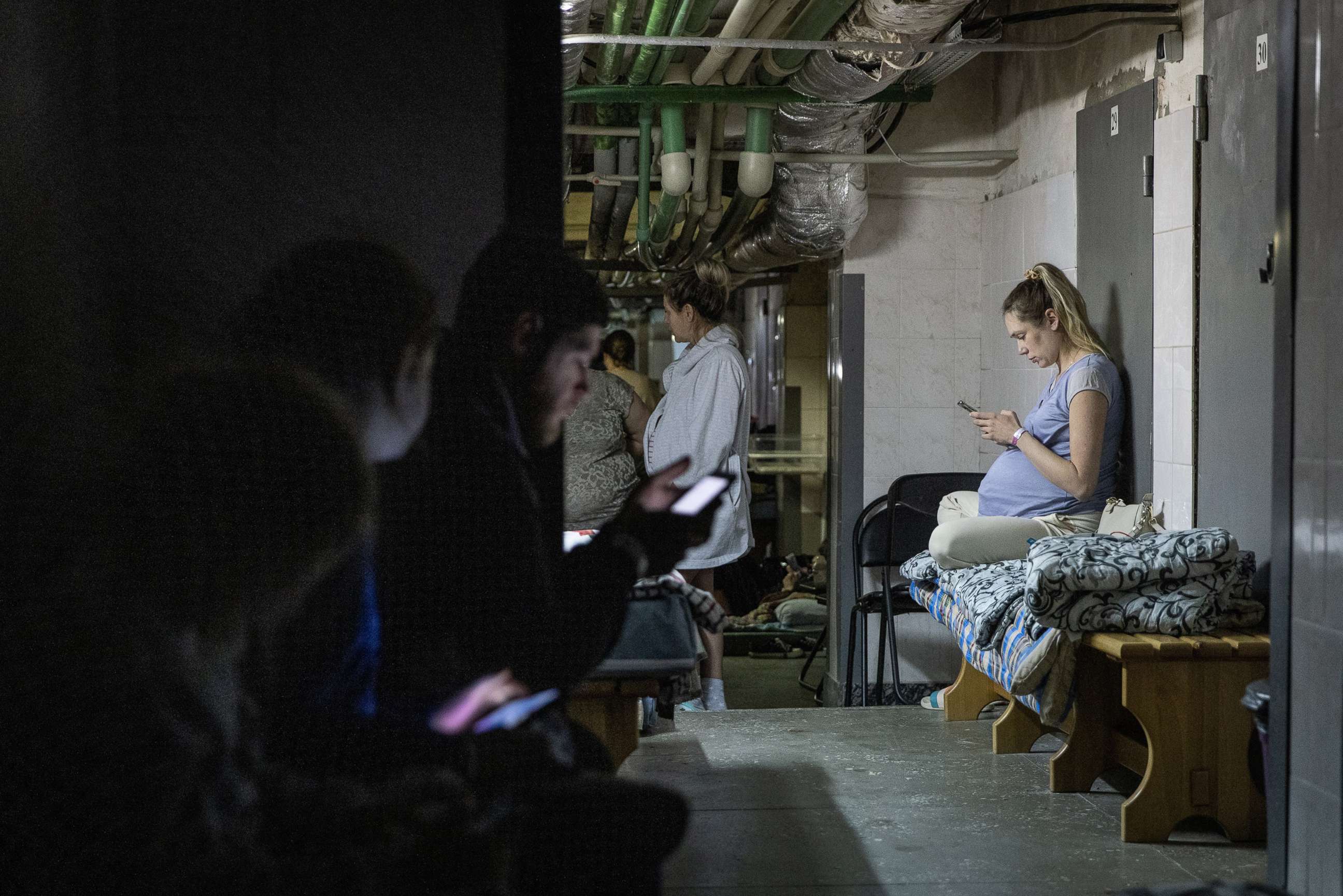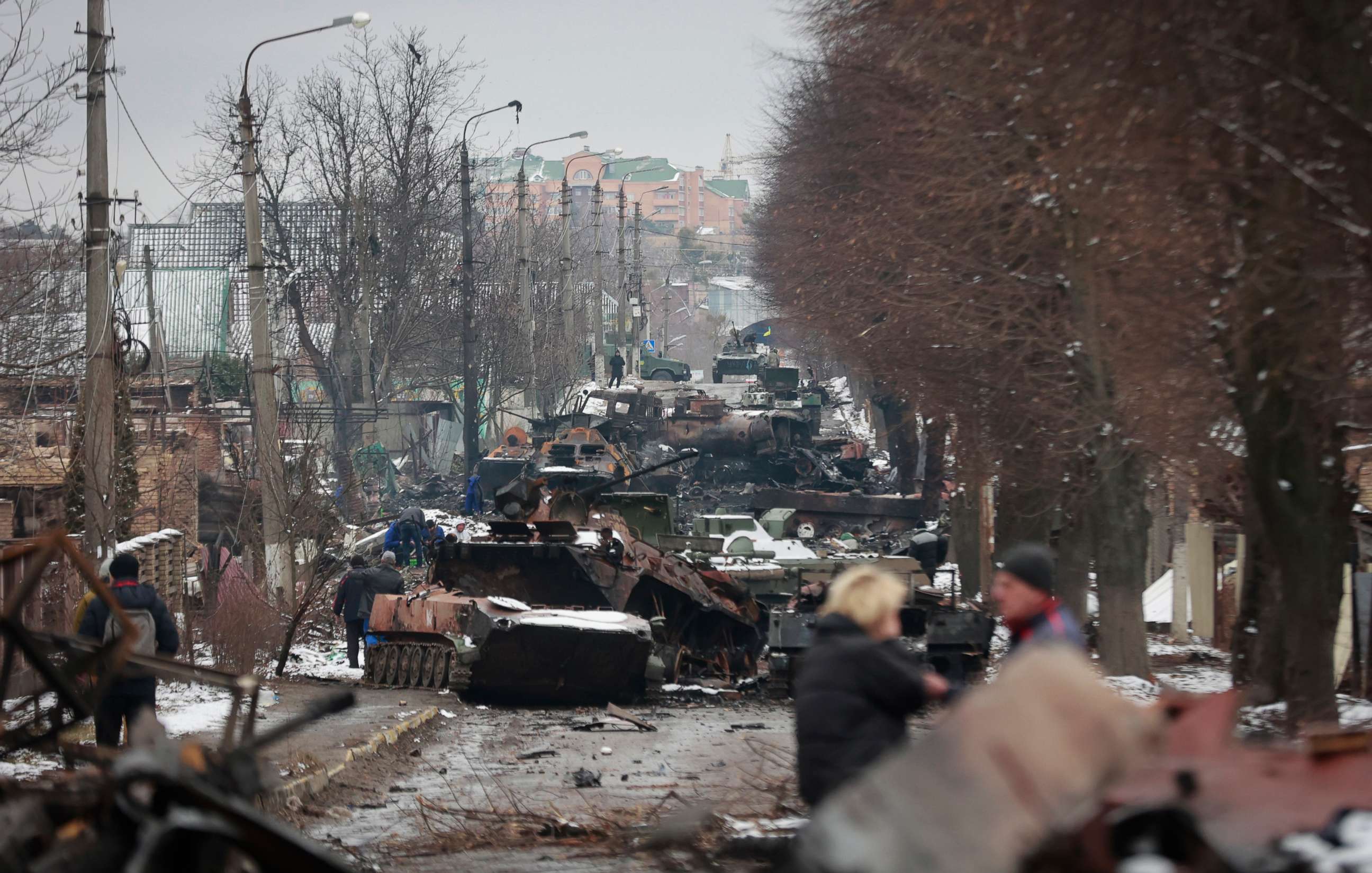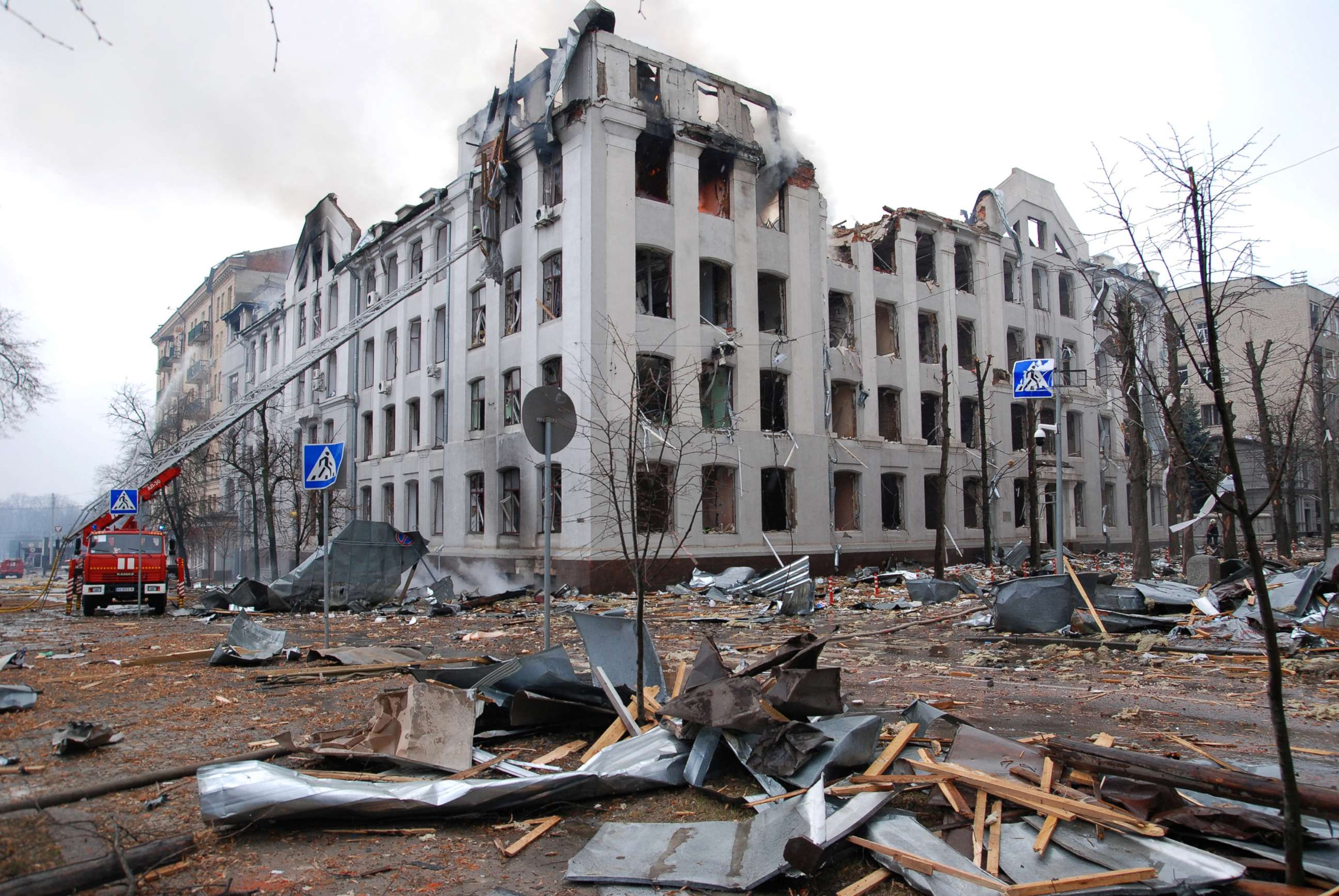Memes become weapons in Ukraine-Russia conflict
History experts say social media posts are latest in long line of propaganda.
Typically used for fun on social media, memes out of Ukraine are serious business amid Russia's attack.
In fact, history and media experts who spoke with ABC News said the social media posts about Ukraine's resistance against Russian forces are war tools.
Jennifer Grygiel, an associate professor of communications at Syracuse University who specializes in social media and memes, told ABC News that social media campaigns, undertaken by big governments or grassroots groups, are critical in gaining worldwide support.
"That's how warfare is conducted in the information space. It's about narratives and public belief," Grygiel said.

As social media warfare heats up, Grygiel and other experts say the world needs to be on high alert and prevent spreading false information.
U.S. and European officials also say the Russian government began using social media videos in the last couple of months to plant false flag stories that bolster Putin's claims that his invasion is legitimate.
In one video posted in February, Russian-backed separatists claimed they were ordering an "immediate evacuation" to Russia because of unrest in Ukraine. But metadata embedded in the video files showed they had been created two days earlier, according to Western intelligence officials.
V.S. Subrahmanian, a faculty fellow at Northwestern University's Buffett Institute for Global Affairs and cybersecurity expert, told ABC News that these tactics aren't new.
He said during World War II, Western and Nazi forces would airdrop leaflets onto the battlefield and in towns to promote their respective country and to intimidate the enemy.
"What's happening today is these leaflets are now tweets, or Facebook posts or posts on TikTok and they are sowing the disinformation campaign long before any invasion tactics, " Subrahmanian said.
The biggest difference in this tactic, according to Subrahmanian, is that years of Russian government disinformation campaigns have added up and the world is not taking the bait.

And it may have spurred Ukrainians to take back that online narrative.
Since the invasion began, there have been viral posts from social media users in the country that have highlighted the Ukrainians' resolve. In addition to publishing photos and videos of resistance forces taking down Russian troops and tanks, social media users are also promoting the acts of civilians.
"The most important mission of any warfare is success on the ground," Daniel Johnson, a Roy H. Park Fellow at UNC Hussman's School of Journalism and former U.S. Army journalist told ABC News. "Russia is running into the issue where they are fighting battles that they thought it would be winning. So when they put out messages saying they're winning, people around the world know it's false."
Johnson said the U.S. Army and other military units are tasked with putting out the social media from the front lines, but what makes the situation interesting in Ukraine is that the posts are coming from civilians voluntarily. This is their form of nationalistic pride and duty, he said.
"In previous wars, we'd have people help with giving supplies or letters. Now you have a video post," he said.
Johnson said that the Ukrainian social media posts are keeping the Russian disinformation campaign at bay as Ukrainian victories posted online have been livestreamed and captured by multiple users from different angles.
"It's hard to lie when I have 150 videos showing that you're not in Kyiv and you're not winning," he said.

Some of the posts are getting more attention.
In one video, a group of Ukrainian soldiers on Snake Island in the Black Sea were seen responding to a Russian warship's threats of a bombing by telling the ship's crew to "go (expletive) yourself." In another post, a Ukrainian woman is seen scolding a Russian soldier, telling him to "put sunflower seeds in your pocket so they grow when you die."
The ongoing stories of the Ukrainian fighter pilot nicknamed "the Ghost of Kyiv," have also been trending, for their reported successful airstrikes against Russian forces. Military experts haven't been able to confirm if the "Ghost of Kyiv" is a real person.
Johnson said these figures, real or not, play an important role in boosting the resistance's spirits and have done so in the past with examples like "Rosie the Riveter."
"Legends have a morale power," he said. "It's what they represent more than anything."
Grygiel said one of the most important effects of Ukrainian social media and memes is showing the world how devastating Russian attacks are on the populace and cities. For many people around the world, this is their first taste of the atrocities of war in real time, Grygiel said.
"There is something human about seeing who you're about to harm," they said.
Grygiel and the other experts said there will be a greater emphasis on media and Internet messaging campaigns during the current conflict and future international wars. Meta, Facebook's parent company, announced this week that it had shut down accounts that spread misinformation about Ukraine.
Governments and social media companies need to go further and keep an eye on the content that they're promoting Grygiel said.
"When it comes to propaganda and disinformation there is no limit," Grygiel said.
ABC News' Jesse Convertino contributed to this report.




